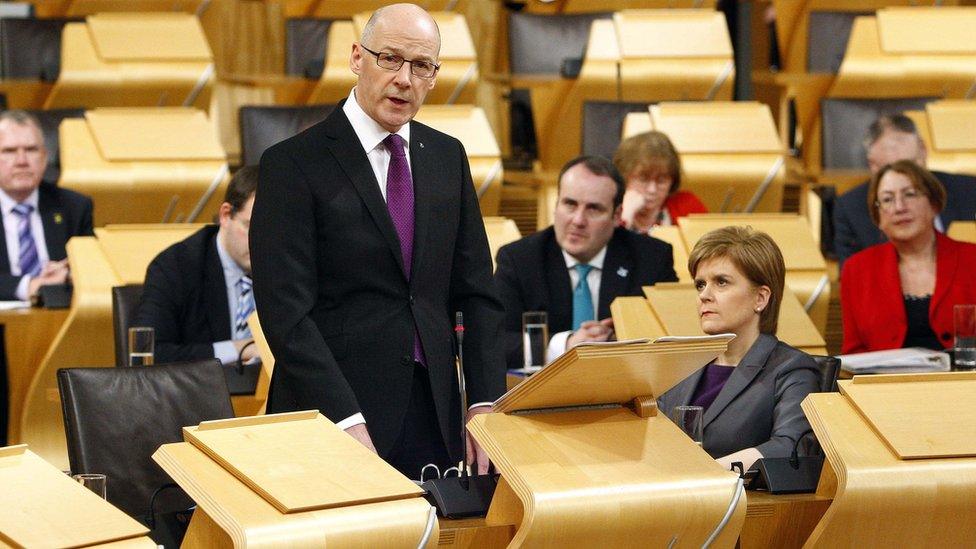MSPs agree 2016-17 Scottish budget after Holyrood debate
- Published
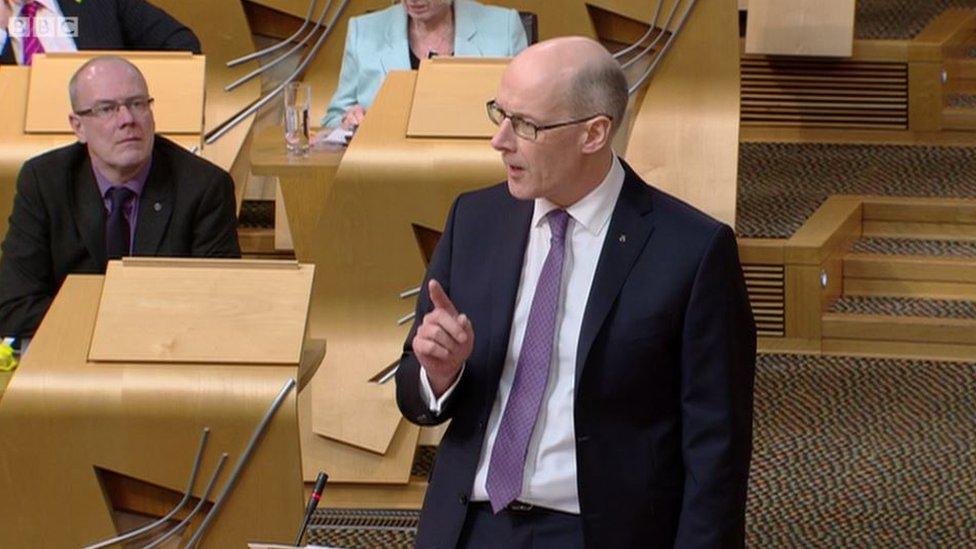
Mr Swinney told MSPs that claims about council job cuts had been "utterly exaggerated"
The Scottish government's budget for the next year has been passed by MSPs after a heated Holyrood debate.
Opposition parties continued to press Finance Secretary John Swinney for a 1p rise in Scottish income tax rates to generate funding for education.
Trade union members protested outside Holyrood over cuts to council budgets prior to the debate.
Mr Swinney, who ruled out raising income tax, announced extra funding for closing the attainment gap in schools.
He pledged an extra £80m over three years for the Attainment Scotland Fund, a scheme aimed at supporting pupils from Scotland's "poorest neighbourhoods".
The budget was passed by the votes of SNP members, after all opposition parties spoke out against it.
Mr Swinney prompted anger from the Labour benches when he said claims about council job losses had been "utterly exaggerated".
He said: "My priority all along has been to deliver a financial settlement that councils can accept in order that we can pursue our shared priorities to protect household incomes, improve outcomes for people through health and social care integration and by improving educational attainment.
"We have worked to protect our public services and pursue ambitious reform to help ensure that public services meet the needs of the people of Scotland."
Mr Swinney said the government must also "look to the future" while considering new powers to be devolved as part of the Scotland Bill, the financial groundwork for which was agreed with the UK government this week.
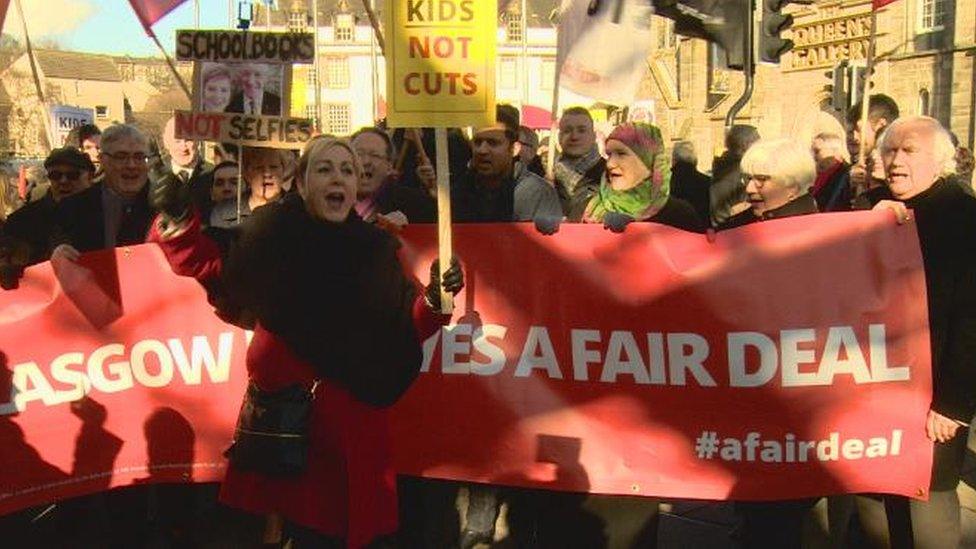
Trade unions held protest outside Holyrood prior to the budget debate
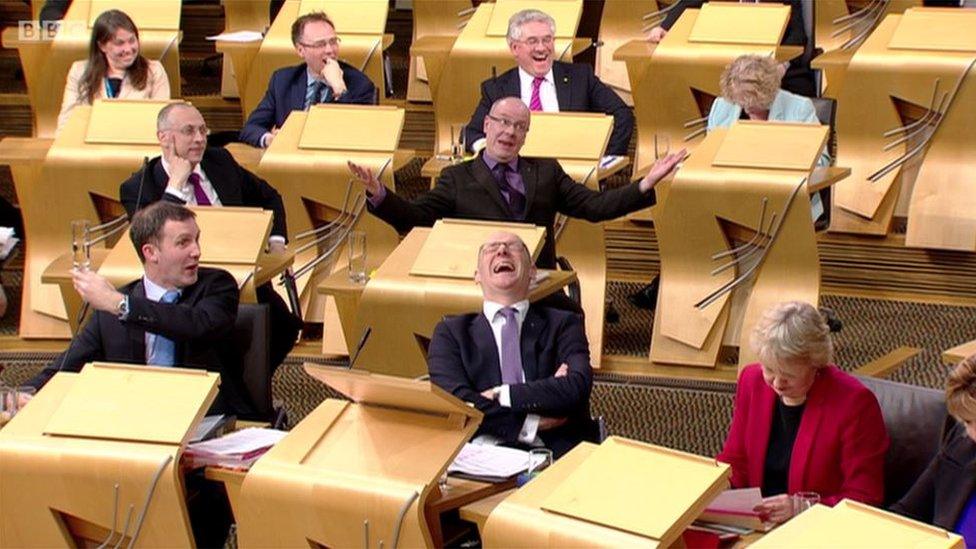
The budget was passed following an occasionally heated budget debate
Among the key measures in the budget are a new 3% levy of the purchase price of second homes and buy-to-let properties.
Mr Swinney also pledged to continue the council tax freeze, and to invest £200m over the next five years in six new NHS treatment centres.
Other measures in Mr Swinney's budget included:
Total revenue funding for local government of £9.5bn - which Cosla says amounts to a 3.5% cut
A commitment to increase free childcare for three and four-year-olds to 1,140 hours per year in the next parliament
College funding to be protected, and commitment to free tuition to continue
Work to begin on construction of the Dalry by-pass in Ayrshire and improvements to the Haudagin roundabout in Aberdeen
An extra £45m next year to fund improvements and develop new models of primary health care
An increase of £90m in the budget for affordable housing for next year
A review of the business rates system to be launched
Reaction to the budget has largely focused on its impact on local government finances, with council body Cosla previously claiming that Scotland's 32 councils would lose out on £350m between them.
But despite threats from some councils that they were considering raising council tax rates in an attempt to ease the burden on their finances, none have actually done so.
Both Scottish Labour and the Scottish Liberal Democrats called for the Scottish rate of income tax to be set one penny higher than the rate set elsewhere in the UK by Chancellor George Osborne, arguing the move could raise about £475m.
Scottish Labour leader Kezia Dugdale said the move would mean "we can end cuts, not enforce them".
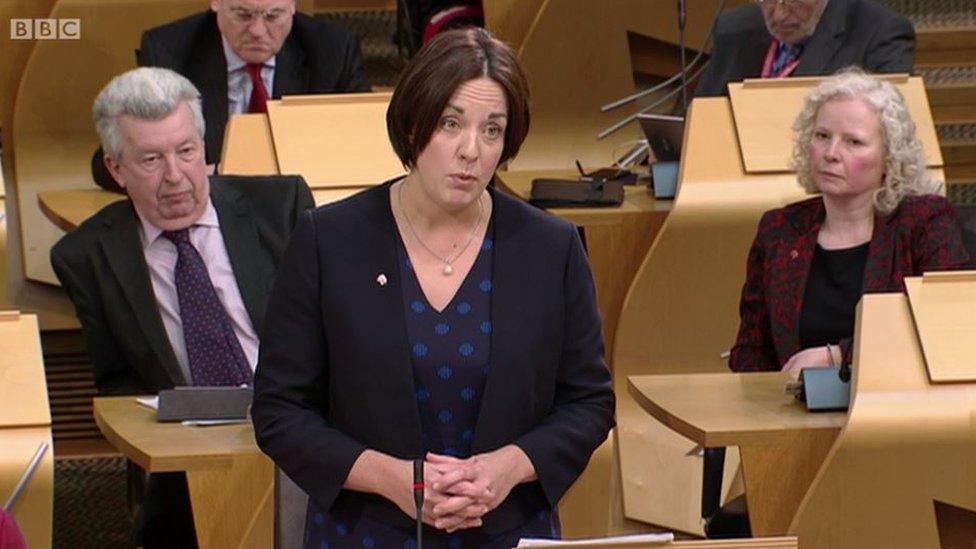
Kezia Dugdale said SNP MSPs could "end austerity today" by siding with her tax proposals
She said: "Simply by pressing a button, SNP MSPs could join with Labour MSPs and end austerity this year, today.
"I say to them, what you told voters you wanted is here in front of you. use our new powers, don't leave them on the shelf.
"Stop these cuts, save these jobs, invest in our children's future."
'Damaging reductions'
Also arguing for a tax increase, Lib Dem leader Willie Rennie said the budget was "the big chance" to use Holyrood's power to help save public services.
He said SNP members were "desperate to find excuses" not to step in to protect services, saying: "We will see the harsh reality of John Swinney's cuts in the next few weeks."
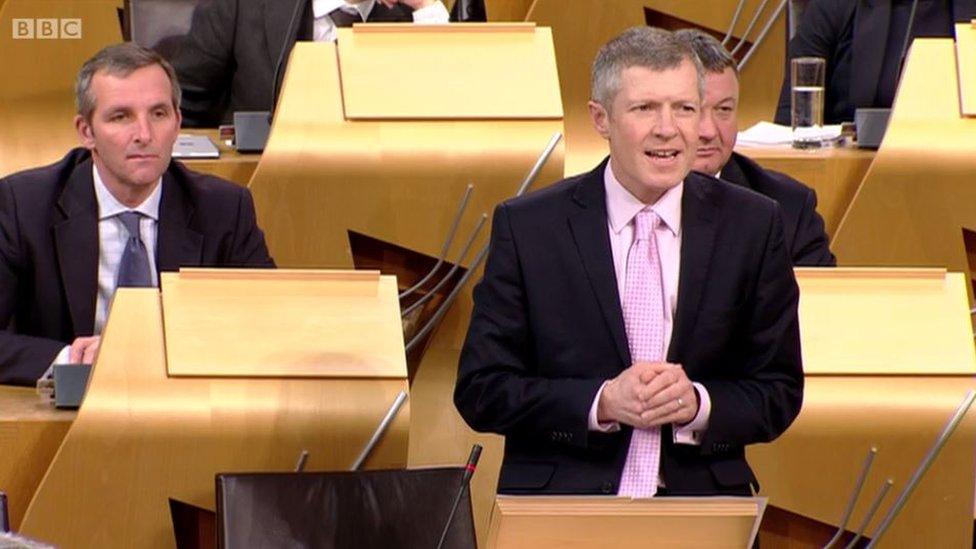
Willie Rennie said the SNP were "desperate to find excuses" not to protect local services
The Scottish Conservatives said that taxes in Scotland should be no higher than the rest of the UK - and lower when affordable.
Murdo Fraser said he was pleased the SNP had joined his party "hand in glove" in a "new tax payers' alliance" to oppose tax rises. However, he said the Conservatives would not be backing the government's budget due to other "damaging" proposals.
'Deeply concerned'
Patrick Harvie said his Scottish Greens would be happy to work "constructively" with the government to protect local services, but said he was "deeply concerned" about the budget.
He also said the council tax was "no longer adequate". The Greens have put forward proposals for raising revenue though measures including a tax on derelict and vacant land and allowing councils to set their own levels of council tax without financial penalty.
Mr Swinney has argued that increasing income tax rates at this stage would hit the country's lowest-paid workers hardest as any changes would need to be made across all of the tax bands.
But the Scottish government has said it will look at creating a more "progressive" tax regime when greater powers over income tax are devolved under the Scotland Bill, which is expected to come into force next year.
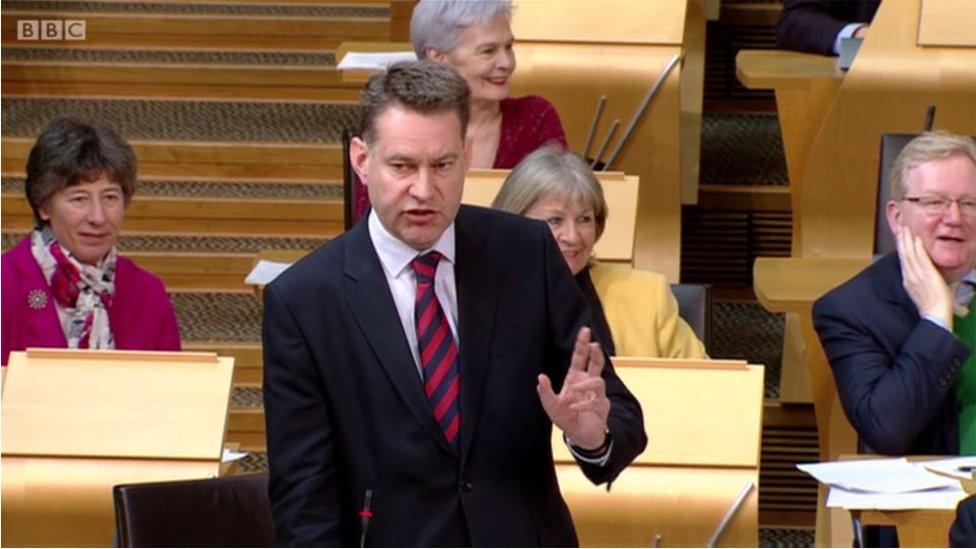
Murdo Fraser said he was happy the SNP and Tories had formed a new "tax payers' alliance"
- Published11 February 2016

- Published3 February 2016
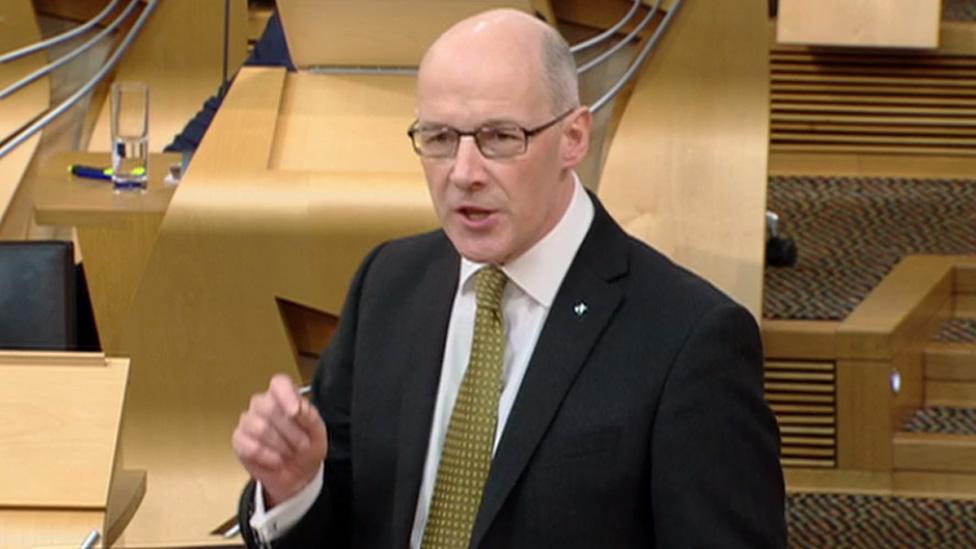
- Published2 February 2016
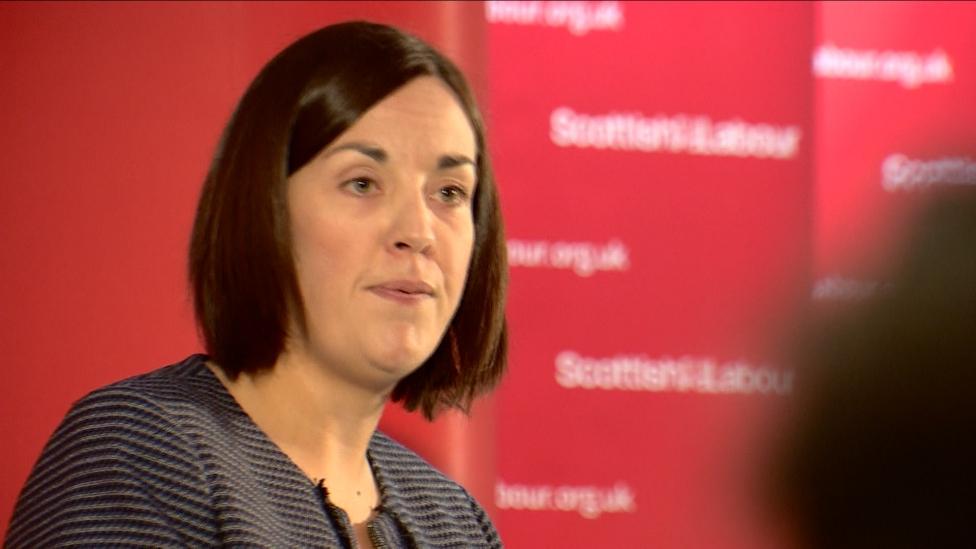
- Published27 January 2016
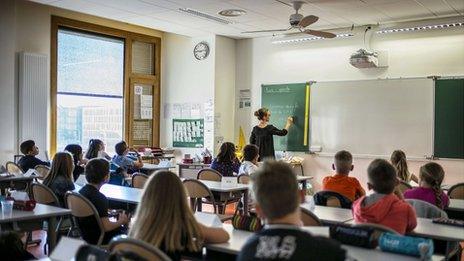
- Published16 December 2015
